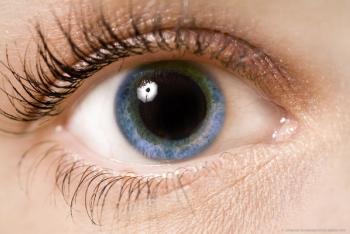
How taking a holistic, tactical approach into process improvement can drive even the smallest of gains for your practice

How taking a holistic, tactical approach into process improvement can drive even the smallest of gains for your practice

Favorable outcomes have been achieved after the first clinical use of IOL technology that is designed to maintain an open capsule long-term after cataract surgery and enable refractive fine-tuning postoperatively.

"Techniques and technologies evolve in parallel, and the motivation should always be to improve lives," said Steve Charles, MD, founder, Charles Retina Institute, Germantown, TN.

Small-incision lenticule extraction monovision could be a valid option to manage presbyopia in patients with myopia, said Sheetal Brar, MD.

A modified correcting applanation tonometry surface (CATS) prism reduces measurement errors due to corneal biomechanical parameters and improves the accuracy of IOP measurements compared with a standard Goldmann applanation tonometer (GAT) prism.

An investigational laser was singled out by Richard Packard, MD, is a session to highlight "exciting new devices" to help surgeons. The technology provides a fast, simple, and elegant technique for precise capsulotomy, he noted.

In eyes with keratoconus undergoing CXL, topography-guided photorefractive keratectomy (TG-PRK) provides superior refractive and functional outcomes compared with transepithelial phototherapeutic keratectomy (TE-PTK). Yet, there remains a role for PTK, said Simon P. Holland, MD.

Ophthalmologists know from large studies that the major driving factor for patient satisfaction is having a good postoperative refractive outcome. "That is especially so for patients receiving multifocal IOLs, toric lenses, or having clear lens exchange," said Oliver Findl, MD, MBA.

Instead of thinking about getting patients to see 20/20 uncorrected vision and out of the inconvenience of glasses or contact lenses, perhaps in the future we will be talking about getting them all to see 20/10 uncorrected and better than they could before with correction, said Daniel S. Durrie, MD. .

Injecting air into the lumen of the graft is an effective and efficient technique for dealing with the dreaded "taquito" graft configuration when performing Descemet's membrane endothelial keratoplasty (DMEK), said Neda Shamie, MD.

Delivering the Steinert Lecture during the ASCRS Refractive Day, Richard L. Lindstrom, MD, provided his thoughts on the current and forthcoming state of laser refractive surgery.

Results of the EAGLE study support clear-lens extraction as initial intervention for eyes with primary angle-closure glaucoma (PACG) or primary-angle closure (PAC) and high IOP, said David S. Friedman, MD, PhD, at the 2018 ASCRS Glaucoma Day.

Small pupils usually travel in clusters with other surgical challenges. Kendall E. Donaldson, MD, MS, explains how surgeons may better manage small pupils during phacoemulsification by employing all tools and techniques available to them.

Clinical researchers, experts share the latest news in vision research, focusing on the power of genetic therapy

Learn how coordination, cooperation, and communication make up the components of successful delegation.

In an increasingly technologic world, blue light-omitted by devices like cell phones and computers-is inescapable. It’s important to know how it contributes to AMD, and how your patients can take steps to protect their eyesight with three easy tips from Alan Mendelsohn, MD.

Surgeons work hard to get happy patients, and satisfied patients spread the word and refer their friends. They don't need extra post-op visits, and can return yearly to see their referring doctor. Selecting the best presbyopia-correcting IOL for a patient is critical and depends on methodical, preoperative decision-making.

Is this new policy in the patient's best interest?

Findings of a study determining the prediction error in the magnitude of residual astigmatism after cataract surgery with a toric intraocular lens (IOL) suggest that use of intraoperative wavefront aberrometry for toric power selection could enhance the refractive outcome in a large subset of eyes.

The famous line from George Bernard Shaw's "Man and Superman"-"those who can, do; those who can't, teach"-is sometimes quoted to explain why certain of us choose a career in academics. Fortunately for many medical students, the head of medical student education in my medical school was both a doer and a teacher.

Results of a retrospective study show that simple congenital ptosis, even when the pupil is obstructed, is less amblyogenic than conventionally thought. The study supports correcting refractive error and strabismus before considering ptosis surgery.

Results of a randomized controlled trial suggest that treatment with topical trehalose 3% ophthalmic solution might increase the rate of re-epithelialization after PRK.

Topography-guided LASIK and small-incision lenticule extraction (SMILE) were compared for the treatment of myopia and myopic astigmatism in a randomized, contralateral eye study. Results were good with both procedures, but at 3 and 12 months, there were statistically significant differences for most outcomes favoring LASIK.

A sustained-release dexamethasone implant is safe and well tolerated when used to control pain and inflammation after cataract surgery, according to investigators.

Corneal lifting is a new technique to treat keratoconus. The technique offers the possibility of performing refractive complementary procedures based on a normal cornea.

Let's examine the most successful things your front office can do to improve dispensary sales.


LASIK is a highly customized treatment option, which makes it a sought-after procedure to the millennial generation.The popular online review platform Yelp! is a helpful tool in generating positive feedback, which then attracts younger people to visit your practice.


Interested in becoming a principal researcher? Read this first.